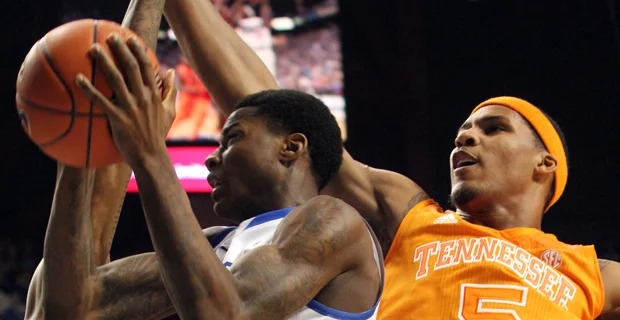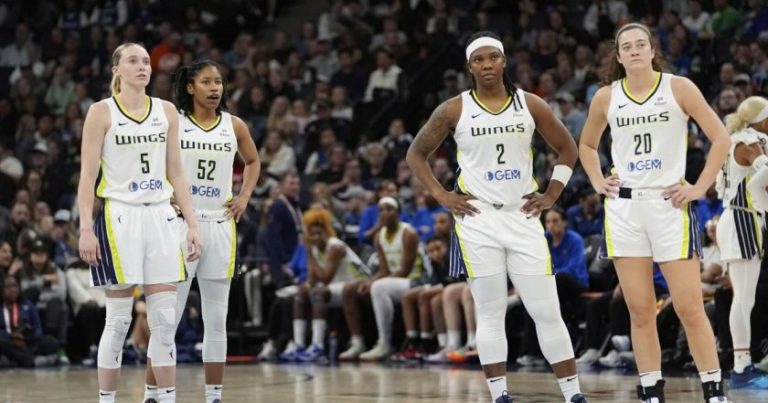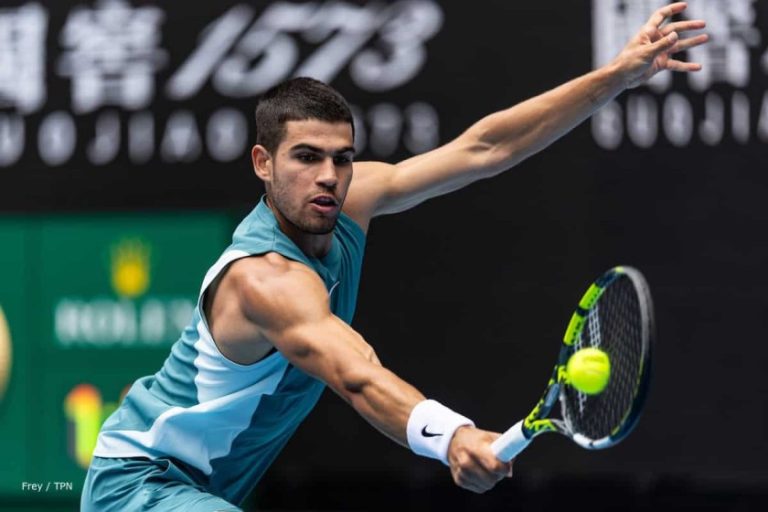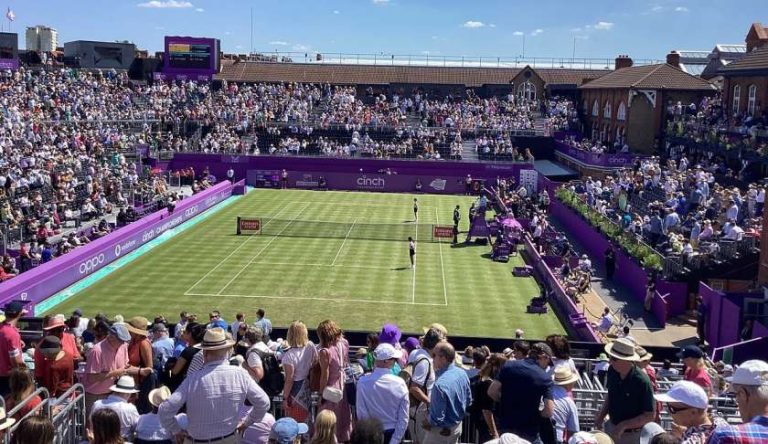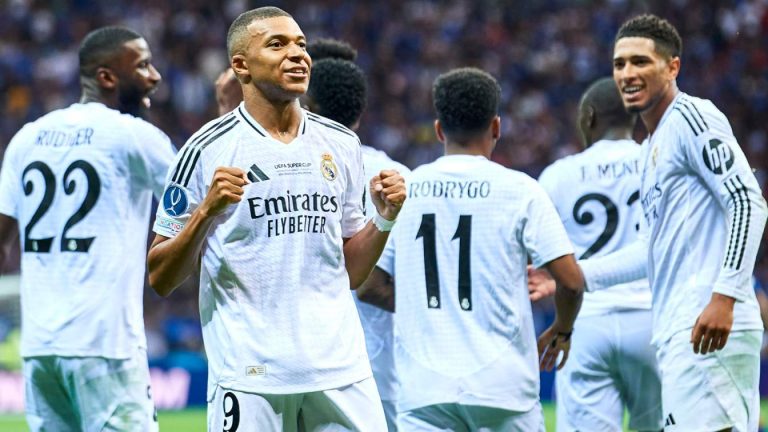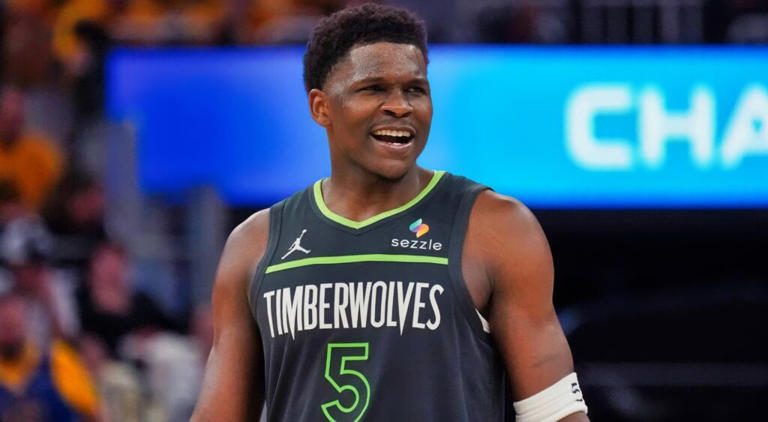
Table of Contents
Anthony Edwards reading the headlines has become a hot topic, especially after Stephen A. Smith’s pointed commentary. Edwards is undoubtedly a rising star in the NBA, electrifying courts with his athleticism and undeniable talent. His recent playoff performances have garnered significant attention, prompting ESPN’s Stephen A. Smith to deliver a crucial message: Edwards shouldn’t be “reading the headlines.” While this might sound counterintuitive in an era dominated by social media and instant gratification, Smith’s advice is a critical lesson in fostering long-term success.
The Peril of Premature Praise for NBA Youngsters
The NBA spotlight can be blinding, especially for young phenoms. When players like Anthony Edwards start making highlight reels and racking up wins, the adulation can be overwhelming. Suddenly, they’re being compared to legends and hailed as the future of the league. While confidence is crucial, an overreliance on external validation can stunt growth.
Why Constantly “Anthony Edwards Reading the Headlines” Can Be Detrimental
For Anthony Edwards, constantly soaking in the praise could lead to complacency. The danger lies in believing you’ve “made it” before you’ve truly reached your peak.
- Loss of Hunger: The drive to improve often stems from a feeling of needing to prove oneself. Constant affirmation can dull this edge.
- Distraction from Fundamentals: Focusing on media narratives diverts attention from the grueling work required to refine skills and address weaknesses.
- Vulnerability to Criticism: If a player becomes reliant on positive headlines, the inevitable negative ones can disproportionately affect their mental game.
The Road Ahead: What True Superstardom Demands
Stephen A. Smith’s message to Anthony Edwards isn’t about diminishing his current achievements; it’s about pushing him toward his ultimate potential. To become a true superstar, Edwards needs to cultivate an internal locus of control and a relentless pursuit of excellence.
Embracing the Grind, Ignoring the Noise
The most successful athletes understand that their greatest competition is often themselves. They don’t just work hard; they work smart, constantly analyzing their performance and seeking areas for improvement.
- Self-Assessment Over Public Opinion: True growth comes from honest self-evaluation, not from what analysts or fans are saying.
- Commitment to Craft: Legendary players like Michael Jordan and Kobe Bryant were known for their insatiable work ethic, even after achieving multiple championships. Their focus remained on honing their craft. You can read more about Michael Jordan’s work ethic in his biography, Driven from Within.
- Mental Fortitude: Navigating the highs and lows of an NBA season requires immense mental strength. Detaching from external validation builds resilience.
Building a Dynasty: Beyond Individual Acclaim
For the Minnesota Timberwolves, Anthony Edwards‘ development is paramount. But his journey to superstardom also involves elevating his team. The focus needs to shift from individual accolades to collective success.
The Team-First Mentality
Superstars don’t just score points; they make their teammates better. They understand that ultimate success is measured in championships, not just individual statistics or glowing headlines. Consider how other young stars like Ja Morant or Zion Williamson are evolving their game beyond individual highlights, focusing on team dynamics (Click here).
- Leadership Development: As Edwards matures, he’ll be expected to take on more of a leadership role, guiding his team through adversity.
- Sacrifice for the Greater Good: Sometimes, a player might need to defer shots or adjust their game for the benefit of the team, even if it means fewer individual highlights.
- Championship Mindset: The goal isn’t just to be good; it’s to be great enough to win a title. This requires an unwavering focus on team cohesion and strategic execution.
The Next Level for Anthony Edwards
Stephen A. Smith’s advice isn’t new, but it’s timeless. For a talent like Anthony Edwards, who has already shown flashes of brilliance, the next step is to block out the noise and focus squarely on the work. As a veteran sports journalist with over a decade of analyzing player development, I’ve seen countless promising careers derailed by early fame. Edwards has the potential to defy that trend, but only if he heeds the wisdom of those who have seen it all.
Ready for the next chapter of greatness? It starts by putting down the phone and picking up the ball, with an unwavering commitment to the fundamentals.
FAQs
1. What exactly does Stephen A. Smith mean by “reading the headlines”?
He means becoming overly focused on and influenced by media praise, social media reactions, and general public opinion, which can lead to complacency or distraction for a young player.
2. Why is this advice particularly important for young NBA players?
Young players are still developing their game and mental fortitude. Excessive praise can create a false sense of accomplishment, hindering their drive to continuously improve and adapt to the rigorous demands of the league.
3. How can Anthony Edwards apply this advice to his career?
By focusing on his internal growth, working diligently on his weaknesses, maintaining a strong work ethic, and prioritizing team success over individual accolades and media narratives.
4. What are the risks if Anthony Edwards does “read the headlines” too much?
The risks include complacency, a reduced drive to improve, becoming overly sensitive to criticism, potential distractions from fundamental skill development, and a focus on individual praise rather than team goals.
5. What are some examples of NBA players who successfully ignored the hype early in their careers?
Many all-time greats, like Tim Duncan or Kawhi Leonard, were known for their stoic focus and consistent work ethic, often shunning the media spotlight to concentrate on their game and team success.
